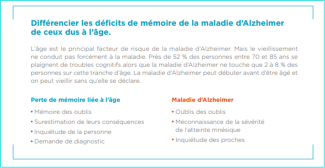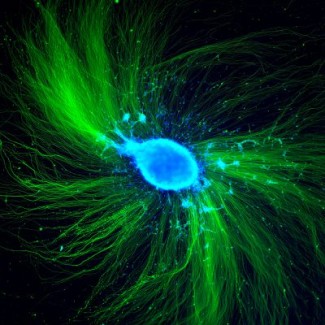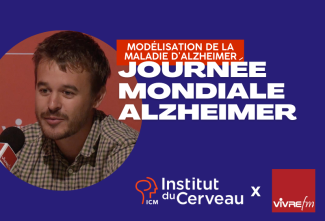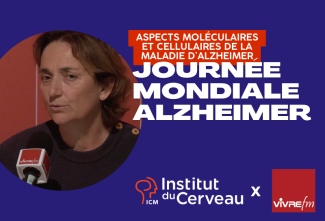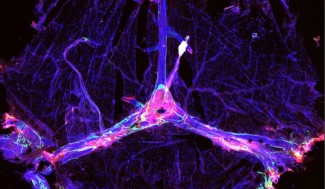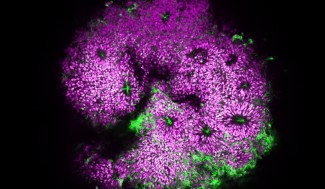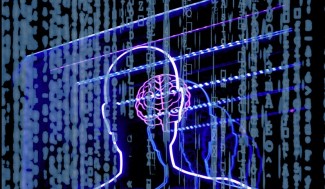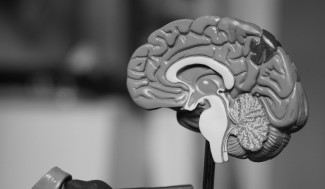Alzheimer’s disease is often known for the memory loss experienced by patients. It is a progressive disease that usually begins with an amnesiac syndrome that is isolated, progressive and unknown to the patient. Progressively, there are problems with language (aphasia), writing (dysgraphy), movement (apraxia), and loss of the ability to recognize objects and faces (agnosia).
Symptoms
These symptoms may be associated with mood (anxiety, depression, irritability), behavioural and sleep disorders.
Is Alzheimer’s disease a real disease, or simply an expression of brain aging? Alzheimer’s disease begins, in the vast majority of cases, with memory problems. Older people may also be affected by these disorders, but the difference is clear: in normal ageing, these are minor oversights, memories have been stored in the brain but have difficulty being "recalled": this is what happens when you look for a name but find it later.
In Alzheimer’s disease, memory problems are not only more severe, but they become more severe and definitive. Memories no longer store in the brain, neurons disappear slowly and inexorably. In normal brain aging, there is no loss of neurons (or very little), some nerve connections may disappear, but the clinical impact is low because neurons have reserves and are able to compensate for their deficiency.
